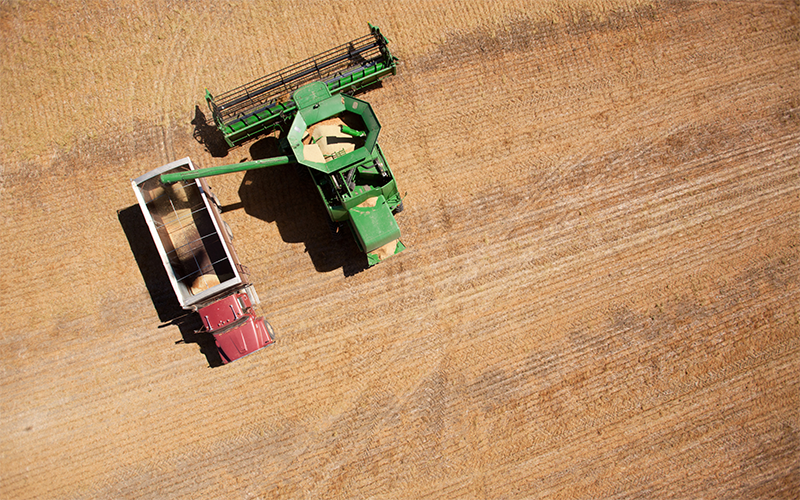
By Jim Moran, VIC Grains Biosecurity Officer
Importing second hand farm machinery such as tractors, seeders, sprayers, harvesters, baling or storage equipment from interstate can provide an alternative to buying brand new. However, there are a few factors to consider before you buy.
Besides the costs of the machine and its transport, there are other costs involved in ensuring the machine meets Victorian biosecurity legislation (Plant Biosecurity Act 2010) and the conditions of entry described in the Victorian Plant Biosecurity Manual. This includes the possibility of an inspection from the source State Authorised Officer and issuance of a Plant Health Certificate (PHC).
Used agricultural equipment and spare parts could pose a high risk to Victoria’s unique environment and agricultural industries. Given the nature of use, there is a significant risk that used machinery could harbor weeds, pests, and diseases unwelcome in Victoria. Therefore, such machinery must meet the specific entry conditions specified in the Plant Quarantine Manual (PQM) to be allowed entry.
For instance, Victoria is currently free from Annual Ryegrass Toxicity (ARGT). ARGT host material includes cereal crops, first cut lucerne, pasture hay, stock feed or plant waste and could be located anywhere in WA, SA or NSW. Any machinery from these states must meet the specific conditions of entry to minimise any risk of introducing ARGT into Victoria.
Victoria is also free from the fungal disease, Lupin Anthracnose (LA). Since important lupin growing states like QLD, SA and WA do not have area freedom from LA, restrictions apply to the importation of machinery into Victoria from these areas.
These, and other biosecurity risks, are carried in soil, animal or plant material found on or inside used farm machinery. Therefore, they must be thoroughly cleaned, free of plant material and visible soil, and inspected by a government officer. A Plant Health Certificate must then be issued before movement into Victoria.
Thoroughly cleaning used machinery involves significant time and expense, often necessitating partial dismantling of equipment to reach concealed, difficult-to-access areas. Debris is commonly found collecting in the driver’s cabin, on the chassis, in the grain bin, augers, belts, elevators, spreaders, choppers, tyres, rims, sieves, radiator and under any guards.
Always check with an Agriculture Victoria Biosecurity officer before you sign up to import a used farm machine into Victoria. The import prohibition doesn’t apply if the host material is grown on, sourced from or last used on a property that is located in a state or territory for which area freedom exists.
In the case of LA, this exemption currently applies for NSW, TAS and the NT, meaning the unrestricted importation of LA host material from these locations is allowed (provided no other quarantine restrictions apply).
Only the NT has state freedom for ARGT, so no permit or PHC is required for machinery from there into Victoria (provided no other quarantine restrictions apply).
Tips for buyers:
This article was originally distributed by Agriculture Victoria.